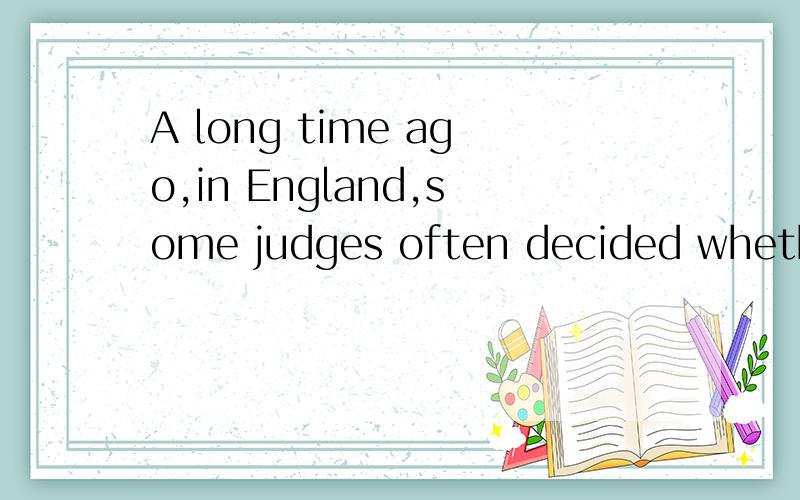A long time ago,in England,some judges often decided whether a man was telling the truth ___ givinghim some dry bread.A.throughB.byC.withD.in为什么选B?
来源:学生作业帮助网 编辑:作业帮 时间:2024/08/12 05:52:10

A long time ago,in England,some judges often decided whether a man was telling the truth ___ givinghim some dry bread.A.throughB.byC.withD.in为什么选B?
A long time ago,in England,some judges often decided whether a man was telling the truth ___ giving
him some dry bread.
A.through
B.by
C.with
D.in
为什么选B?
A long time ago,in England,some judges often decided whether a man was telling the truth ___ givinghim some dry bread.A.throughB.byC.withD.in为什么选B?
很久以前,有些法官是通过放干面包在一个人的手上来判断对方是否说谎.
选择B,by,通过.的方式,而by后面加动词的话则要在动词后加ing形式,所以后面的give加了ING.而A的through,也有通过之意,但这个通过是有点“穿过、穿越”的意思,与句意不符.C的with是“和...”的意思,一般表状态,这句话的意思是强调放置面包的这个方式,不表状态,排除.D的in有“在.”的意思,虽然有时也可以当表方式用,但句中无明显词语搭配,所以不合适,加上有B选项,所以优先选择B.
through后面通常跟his hers this的词
by doing what 这个by的后面跟动词进行时
with 跟 in 不考虑,因为不适合这里